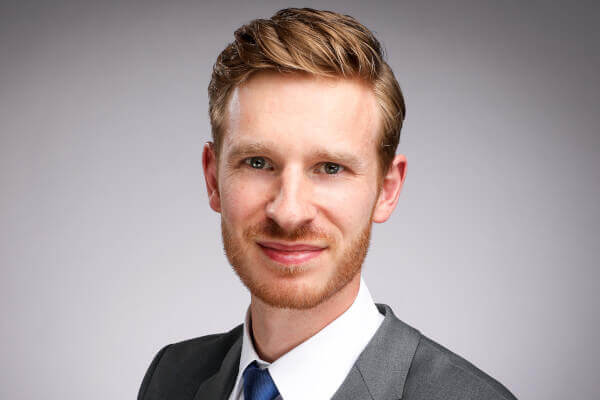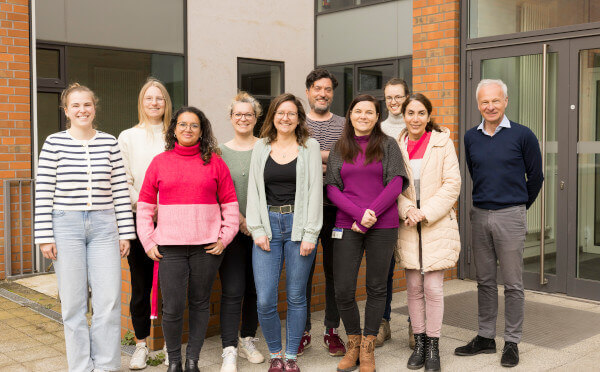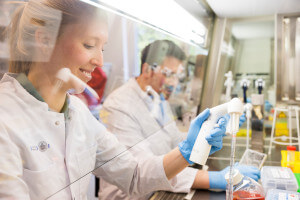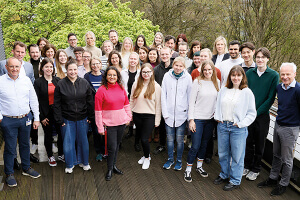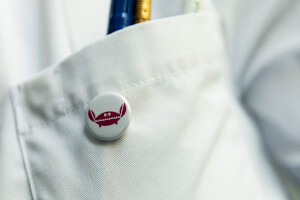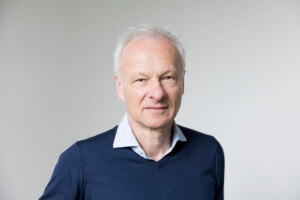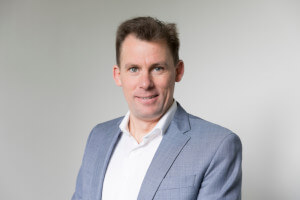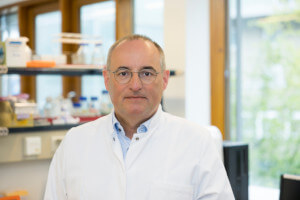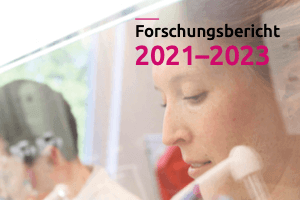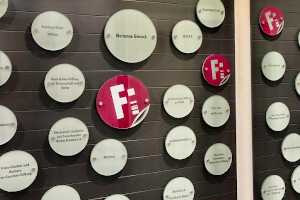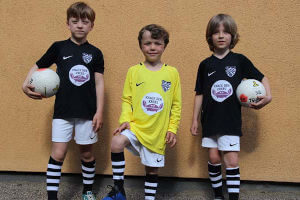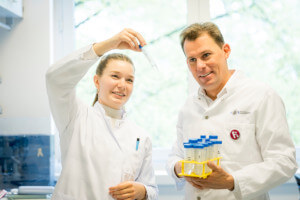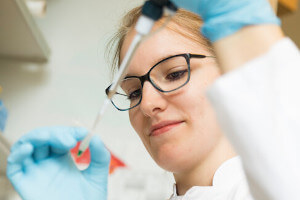Neuroimmune-oncology and cell therapy
Myeloid cells and their role in childhood brain tumors
Mader Research Group
Dr. Marius Mader's research group studies myeloid cells in the central nervous system, particularly microglia, which as specialized immune cells play a central role in physiological and pathological processes. The research focus lies on the importance of myeloid cells in childhood brain tumors, such as malignant gliomas. Representing a large proportion of the total tumor mass, tumor-associated myeloid cells promote tumor growth instead of fighting cancer cells and inhibit other immune cells in mounting an adequate immune response. The research group aims to understand the pathobiology of these cells better, and develop novel therapeutic methods based on the exchange and manipulation of myeloid cells – with the ultimate goal to enable the body's immune system to fight the tumor efficiently.
Marius Mader studied human medicine and gained his medical doctorate at the University Medical Center of the Johannes Gutenberg University Mainz with internships at Harvard Medical School (Boston, USA), Weill Cornell Medical College (New York City, USA), University College London (UK), and the University of Zurich (CH).
He began his specialized clinical training at the Department of Neurosurgery at the University Medical Center Hamburg-Eppendorf in 2015. In 2019, he started a postdoctoral research appointment at Stanford University School of Medicine (USA) funded by the German Research Foundation (DFG). His work there at the Institute for Stem Cell Biology and Regenerative Medicine focused on the biology of microglia and other myeloid cells of the central nervous system, and new methods for exchanging these cells for therapeutic purposes.
Returning to the University Medical Center Hamburg-Eppendorf in 2024, Marius Mader resumed clinical practice at the Department of Neurosurgery and established a new research group based at the Research Institute Children's Cancer Center Hamburg. The research group's scientific interest focuses on developing new cell therapies for pediatric brain tumors.
No information yet
Mader MM, Napole A, Wu D, Shibuya Y, Scavetti A, Foltz A, Atkins M, Hahn O, Yoo Y, Danziger R, Tan C, Wyss-Coray T, Steinman L, Wernig M. Myeloid cell replacement is neuroprotective in chronic experimental autoimmune encephalomyelitis. Nat. Neurosci. 2024
Yoo Y, Neumayer G, Shibuya Y, Mader MM, Wernig M. A cell therapy approach to restore microglial Trem2 function in a mouse model of Alzheimer's disease. Cell Stem Cell 2023
Shibuya Y, Kumar KK, Mader MM, Yoo Y, Ayala LA, Zhou M, Mohr MA, Neumayer G, Kumar I, Yamamoto R, Marcoux P, Liou B, Bennett FC, Nakauchi H, Sun Y, Chen X, Heppner FL, Wyss-Coray T, Südhof TC, Wernig M. Treatment of a genetic brain disease by CNS-wide microglia replacement. Sci. transl. Med. 2022
Mabe NW, Huang M, Dalton GN, Alexe G, Schaefer DA, Geraghty AC, Robichaud AL, Conway AS, Khalid D, Mader MM, Belk JA, Ross KN, Sheffer M, Linde MH, Ly N, Yao W, Rotiroti MC, Smith BAH, Wernig M, Bertozzi CR, Monje M, Mitsiades CS, Majeti R, Satpathy AT, Stegmaier K, Majzner RG. Transition to a mesenchymal state in neuroblastoma confers resistance to anti-GD2 antibody via reduced expression of ST8SIA1. Nat Cancer 2022
No information yet
